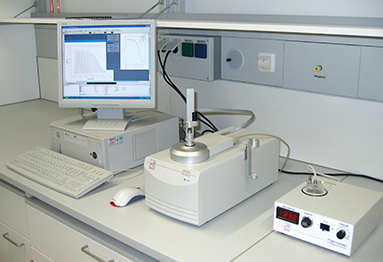Methods for the characterization of molecular interactions

Microcalorimetry is used to study reactions with biomolecules. This includes interactions between molecules and conformational changes such as protein folding. Applications include confirmation studies of putative binding partners, the analysis of interactions and stability tests of biomolecules.
The development of bioanalytical tests requires a well characterized biological analyte binding system. The repertoire of specific and sensitive binders ranges from antibodies to aptamers, peptides, nanoparticles and tailor-made multivalent recognition structures. For the characterization of binding properties such as affinity and binding kinetics, we offer a range of optical, thermo-optical and thermoanalytical instruments. All techniques are continuously optimized for (customer)-specific applications. Together with our partners we define the optimal test composition, support the test development and the transfer into production.
 Fraunhofer Institute for Cell Therapy and Immunology, Branch Bioanalytics and Bioprocesses IZI-BB
Fraunhofer Institute for Cell Therapy and Immunology, Branch Bioanalytics and Bioprocesses IZI-BB